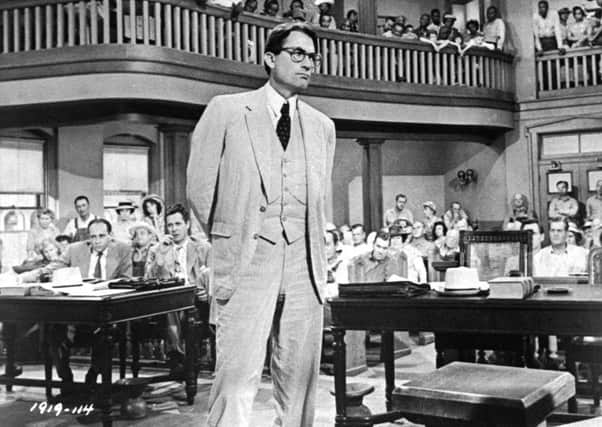Book review: Go Set A Watchman by Harper Lee


A few facts first. Go Set a Watchman is not a sequel to To Kill a Mockingbird in publishing terms, nor is it a prequel in terms of their chronologies. It is a sort of prototype, a first pass at the characters of Scout and Atticus Finch. At its worst, it is period-piece juvenilia, and at its best it shows the unmistakable glimmerings of the talent to come.
Set in the 1950s, Scout, going by her real name Jean Louise, returns to Maycomb on vacation from New York. She meets up with her father, who is suffering from arthritis, her exasperating Aunt Alexandra and Henry Clinton, her father’s apprentice, with whom she has a teasingly flirtatious relationship.
Advertisement
Hide AdHer homecoming prompts various reminiscences of her childhood – the best of these has Jem, Scout and Dill playing at religious revivals; the worst involves Scout losing her “falsies” when Henry takes her to a prom. At the same time, she is noticing things which jar with her idealised version of her father, such as a pamphlet on “The Black Plague”, illustrated by an “anthropophagous Negro” and the contents of which “makes Goebbels look like a naïve little country boy”. Yes, the Atticus immortalised by Gregory Peck is now a racist. It’s actually a little more complex. In an argument with her doctor uncle, it is implied that Atticus deliberately sets out to crush her hero-worship, worried that she will never develop an independent conscience while she looks to him as a moral lodestar.
Uncle Jack also gets the best speech about the situation in the South: while Scout has been living in the America of the Atomic Age, “the South’s just beginning its Industrial Revolution”. Nevertheless the confrontation with Atticus is shocking, not because it ruins the character from To Kill a Mockingbird, but because Scout’s idolisation has been so carefully established in Go Set a Watchman. Running alongside the race relations plot is a series of ruminations on Scout’s relationship with Clinton. Can she love him without being in love with him, or is she determined on “the stony path of spinsterhood”? Can she cope with her class’s dictum, “Love whom you will, but marry your own kind”? (Aunt Alexandra has a great speech on why Clinton is and always will be “trash”). Calpurnia the maid is present, but of Boo Radley there is none, and the trial on which To Kill a Mockingbird will hang is relegated to a fleeting, four-line memory.
Some of the writing is clichéd – she returns in the opening sentence with “a delight almost physical” – or else it strives too hard – there is almost something comical about Scout’s mind being described as a “spectral zither” and the adjective “Asquithian” is unbearably jarring.
Scout is still as irreverent as she claims to have been as a child. There is a nicely comical scene, highlighting the town’s Austen-esque codes of propriety and propensity for long memories, which ends with Auntie being told “Why don’t you go and pee in your hat?” But this Scout is more earnest and conflicted than she will become, just as Atticus has more evidently clay-like feet. There is some family secret nonsense at the end which shows an aspiring writer’s attempt at last-minute revelation, which adds little to the narrative.
In the end, this is a literary curiosity more than a “new book”. Yet it has its moments of sheer power. “I despise you and everything you stand for” rails Scout (as I suspect will many irate fans of the later book). “Well, I love you”, Atticus replies, with patrician frostiness.